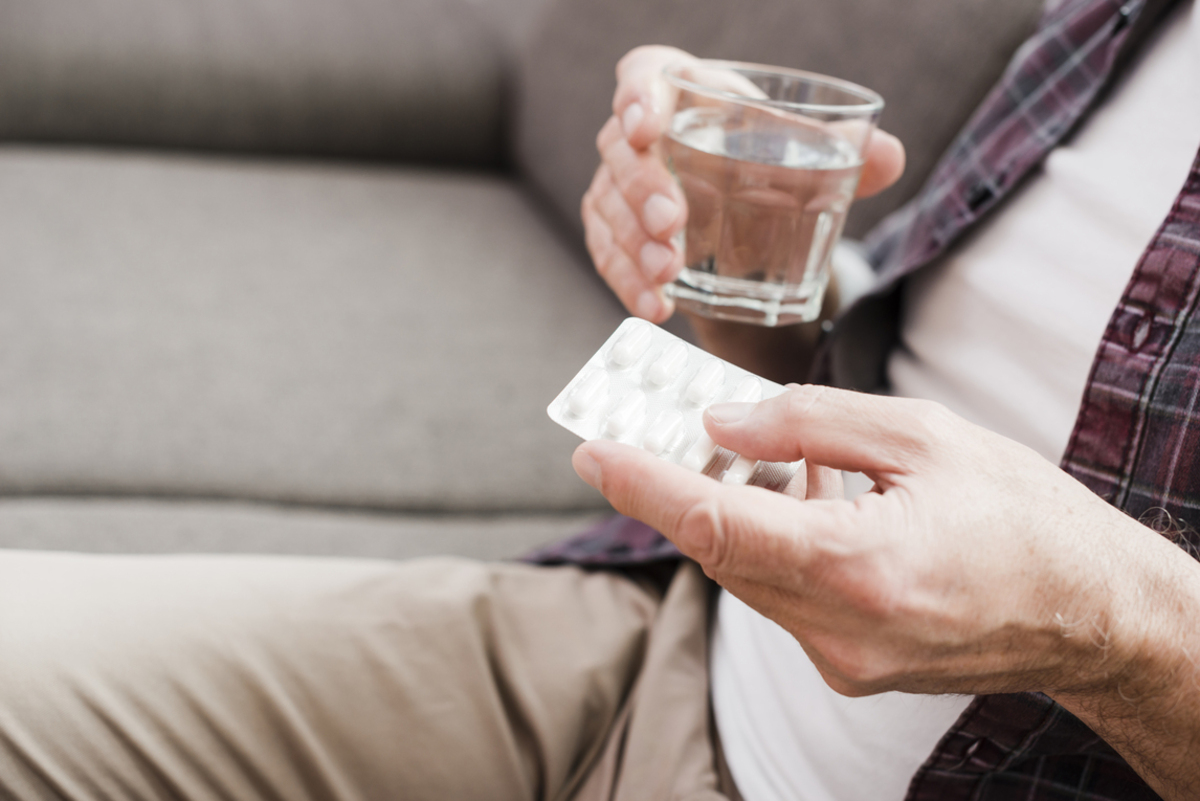Alternative treatment means taking a different path than conventional therapies for a specific condition. While alternative therapies can be good, and some doctors even test them and make them part of their recommendations, it’s always important not to disregard the regular treatment given by a specialist.

Those who take on some form of alternative treatment, whether it’s for lowering cholesterol or some other medical condition, should always discuss this with their doctors at first. That’s because different supplements and vitamins can interact with some of the drugs prescribed by doctors, causing them to be less effective.
1. Niacin
Niacin can’t really be considered an alternative treatment for high cholesterol, as doctors have embraced its effectiveness and are now recommending it to their patients looking to lower cholesterol levels. Niacin is also known as vitamin B3, a vitamin that your body doesn’t naturally produce, so it needs to get it from your diet.
2. Red yeast rice
Red yeast rice is a very interesting topic to discuss when considering it as an alternative treatment to lower cholesterol. Supplements of red yeast rice have proven efficient in helping people decrease their cholesterol levels, because they have monacolin K, and have a chemical composition to lovastatin (a type of statin drug that’s usually prescribed to lower cholesterol).
However, monacolin K has been ruled by the FDA as being a medicine, meaning that on American territory, it cannot be sold as a supplement. That means that, in the US at least, you won’t be able to find red yeast rice which contains monacolin K.
3. Phytosterols
Phytosterols go by many different names, such as stanol esters or plant sterols. They are compounds that lie in the cell membranes of plants, and have a structure very similar to the human body’s cholesterol.
When taking these supplements, phytosterols compete with your body’s cholesterol and block its action, reducing the overall cholesterol levels in the body. Phytosterols can be ingested by eating foods that are rich in these plant sterols, ranging from whole grains to nuts.
Studies have shown that phytosterols can effectively reduce LDL levels with up to 14 percent, while also lowering total cholesterol levels with up to 10 percent. This supplement is also approved by the FDA, stating that foods which have at least 0.65 grams/serving are recommended twice per day in order to help reduce the risk of heart disease.
4. Soluble fibers
Fibers can be both insoluble and soluble, and while both bring certain benefits, the latter is more efficient for lowering cholesterol. Soluble fiber absorbs water and turns into a gel, and can be naturally obtained by consuming foods such as potatoes, oranges, peaches, whole wheat bread, psyllium, or kidney beans.
When need be, soluble fiber can also be ingested in the form of supplements. Soluble fiber can bind to bile acids that are found in your body, eliminating them and forcing the liver to create more, which also means using up more of that bloodstream cholesterol.
5. Coenzyme Q10
For a very long time, Coenzyme Q10 (CoQ10) has been an important ingredient used in cosmetic products, promising to bring many anti-aging benefits because it protects the cells from oxidation. It’s a natural antioxidant that the human body makes, and is commonly found in the cells.
The topic is rather controversial, as the benefits of Coenzyme Q10 in treating patients with high cholesterol were mostly studied on mice, so the evidence is rather inconsistent to draw a clear conclusion on how it may actually work for humans as well.
Coenzyme Q10 is found in the form of supplements, and can be administered together with a statin drug. Coenzyme Q10 supplements can be beneficial in two ways:
- Since treatment with statins has been known to reduce the levels of CoQ10 in the body, CoQ10 supplements can bring these levels back to normal.
- Some evidence also suggests that CoQ10 can relieve people of some of the pains that are side effects of a statin-based treatment, such as muscle and joint aches.
6. Ginger
As with Coenzyme Q10, studies were mostly focused on animal, so more research is needed to determine the exact processes and effects that could link ginger to cholesterol reduction. Ginger is available in a “raw” version, and can be used to add flavor to many foods. Its root is also used to make tea, but it can also be consumed in capsules, as a supplement.
Conclusion
Even if there is scientific evidence to suggest that the aforementioned alternative treatment options might actually help lower cholesterol levels, avoid falling into the trap of thinking that you can just give up your medication treatment and opt for either of these solutions in the hope of a miracle.
Medication for high cholesterol is something that doctors only prescribe when “natural” methods have failed (like dietary changes and exercising), so it’s best to stick to your treatment. If you want, you can talk to your doctor about potentially adding vitamins and supplements to your diet, in an effort to lower cholesterol as much as possible.


Your thoughts on this